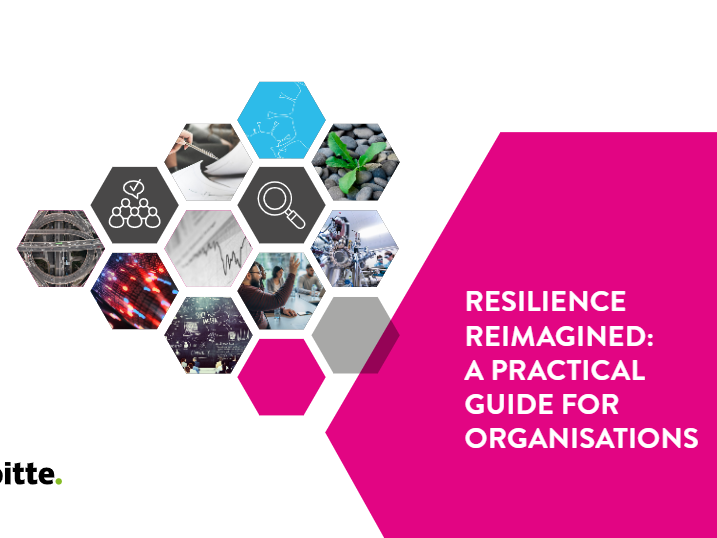
Brian Sims
Editor

Brian Sims
Editor
A MAJOR report authored by researchers at Cranfield University, commissioned by the National Preparedness Commission and supported by Deloitte examines in great detail how businesses have responded to COVID-19 in a determined bid to identify how they might make themselves more resilient to future challenges.

Commenting on the report’s launch, Lord Toby Harris (chair of the National Preparedness Commission) stated: “Our focus must be on what matters most – whether it is to our customers or society at large – and how our preparedness can ensure that those essentials are protected.”
In order to produce the document, Cranfield University’s David Denyer (Professor of Leadership and Organisational Change) and colleague Mike Sutliff (from the Department of Engineering and Applied Science) conducted in-depth interviews and four focus groups with more than 50 C-Suite level individuals (encompassing senior executives, policymakers and resilience directors) from FTSE 100 companies. These in-depth interviews, round tables and focus groups found that, at best, most companies have struggled through the pandemic and were somewhat ill-prepared for the disruption it has caused.
‘Resilience Reimagined: A Practical Guide for Organisations’ presents fascinating insights from business leaders emanating from a range of sectors and goes on to make seven key recommendations for organisations on how to become more resilient, drawing on lessons learned from the past 12 months.
The report warns that we’re entering a new period of uncertainty and change, with an ever-increasing possibility that things will go wrong. The researchers sought answers from leading figures about how resilience can be developed, who does it well and what other businesses can learn from them. It also outlines the practical steps necessary to strengthen resilience for long-term success and makes recommendations to business leaders on what more they can do to help their organisations develop the ability to cope.
Continuity of delivery
Cranfield University’s research finds those organisations that coped best with the pandemic had already been doing the following:
*They understood what was most important to their customers and, therefore, what were the most essential things needed to continue to deliver as the crisis unfolded
*If something went wrong, they knew what the thresholds of tolerable impacts to the customer/user were and had examined in advance alternative ways of delivering those outcomes that mattered the most
*They had relentlessly stress-tested for possible disruption without worrying about what type of threat they might have to face – a cyber attack or a pandemic, for example – learning how to cope when under pressure from challenges that might not be foreseeable or imagined
David Denyer commented: “We don’t know what shape the next crisis will take, but we can take proactive action to prepare. Businesses and organisations need to seize the learnings from this crisis and develop the agility to cope with the next. Whether it’s another pandemic, another financial crisis or threats posed by a cyber attack or climate change, the risks are multiple and complex, but the capabilities of readiness, responsiveness, recoverability and regeneration – the four R’s – are ones that can be ingrained.”
Denyer continued: “One of the reasons why the financial sector coped better than most during the pandemic was that it had taken on the lessons learned from the 2008 crash. By going through that crisis, these organisations had stress-tested, they knew their tolerances and also what an acceptable level of failure was to them and their customers.”
Whole-of-society approach
Lord Toby Harris explained: “The last year has been like no other for most businesses and organisations. Some coped and responded much better than others. We asked Cranfield University to look at why this was and what the lessons are for the future. The Government wants to build a whole-of-society approach towards resilience such that every business, every organisation and every individual can play their part in making sure that, as a nation, we can withstand any future crisis. That means changing organisational cultures to foster an active and agile response to events. This report highlights some of what’s needed to make that scenario a reality.”
Rick Cudworth, partner at Deloitte, concluded: “Dealing with complex events requires flexibility and creativity. Dealing with future uncertainty requires the ability to change course and adapt rapidly. This report clearly shows that resilience is about much more than well-rehearsed plans. This is a fundamental change in thinking which requires senior leaders to make strategic choices, balancing control, agility, efficiency and innovation. It’s great to see leaders pointing to resilience being central to a new ‘social contract’ for responsible business. By adopting the seven practices outlined in this report, organisations will be able to build stronger resilience and be that much better positioned to thrive going forward.”
*Read the 55-page report entitled ‘Resilience Reimagined: A Practical Guide for Organisations’ online
Dorset House
64 High Street
East Grinstead
RH19 3DE
UNITED KINGDOM
01342 31 4300